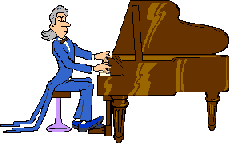Edmond Dede was a black
creole born in New Orleans about 1829, a contemporary of McCarty and of Snaer.
A violin prodigy, he first studied in New Orleans under the tutorship of skillful
and conscientious teachers. After having mastered everything in his field available
to a black man in the city, he went to Europe on the advice of understanding friends.
He visited Belgium first, but not finding in that little kingdom the object of
his search, he traveled to Paris, where he received a ready welcome. In this enlightened
capital, in which everyone acknowledges talent wherever it exists, Edmond Dede
met with
sympathy and assistance.
In this hospitable
country, he found the opportunity he was seeking, namely, that of perfecting
his gift in music and of going as far as he possibly could in his profession as
a violinist. Through the intervention of friends, he was soon admitted as an auditioner
for the Paris Conservatory of Music.
His progress and his triumphs quickly attracted
the attention of the musical world, and he was given all the consideration awarded
to true merit. He was the conducter of the Theater of Bordeaux for twenty-five
years. The violin always remained his instrument.
In
1893 Dede returned to New Orleans, where he
presen
ted a number of concerts. The music critic of L'Abeille, among others, honored
him by attending one of his performances. He was greatly impressed at seeing Dede
play "Le Trouvere" without a score, and gave him ample praise in the
columns of his newspaper.

